There are women and there is Dora Poni Loro. She is a force of nature, an endless source of motivation and a constant source of joy. Her story is remarkable. Her mindset is centred on growth and she lives to create space for others, to empower and to use her voice to speak for those who cannot. In 1999, Dora sought asylum in Norway, leaving behind her family, safety net and the familiar. She started afresh – new home, new language, new studies and new culture. And in the process, she learned a lot, identified some challenges and set out to find actionable solutions to solve them. Her life, social and professional engagement exemplifies the remarkable human she is. She not only talks the talk, she exists in it.
We met Dora in 2019, and in case it isn’t clear, we absolutely love her – as a human being, woman, mother, and enabler. Dora is thoughtful and unafraid to ask the difficult questions. An activist at her core, she uses her voice to plead for, negotiate and demand change. She is compassionate and always pushes for understanding. She actively seeks the middle ground because she believes that we make progress as a human race, when we move together.
She is an inspiration to many, especially women and girls of colour. She represents possibilities and unapologetically stands firm in her womanhood and her African heritage. We could write a book about Dora and still not do her justice. What she represents for many who have had the privilege of knowing her, is wealth. Words can hardly articulate her worth. In many ways, she is the iron that holds many foundations. Through her advocacy, she carries us. For unaccompanied minors who arrive in Norway alone, afraid, unsure, and scarred – she is home. For young girls and women looking for a positive role model and a mentor – she is the bridge. For women of colour who lack representation – she is the North Star. Many of us stand on her shoulders.
Read more about Dora Below.
Can you tell us a bit about yourself and how you came to live in Norway?
I am a mother of two, a social worker and an active global citizen. I stand for Love, Empowerment, Equity and Full potential, for myself and others. I am passionate about issues related to active participation and representation of minorities in the Norwegian society, women’s health, parenting in diverse contexts and migration challenges. I am engaged in various boards where I get to use my voice and competence to address the above-mentioned issues.
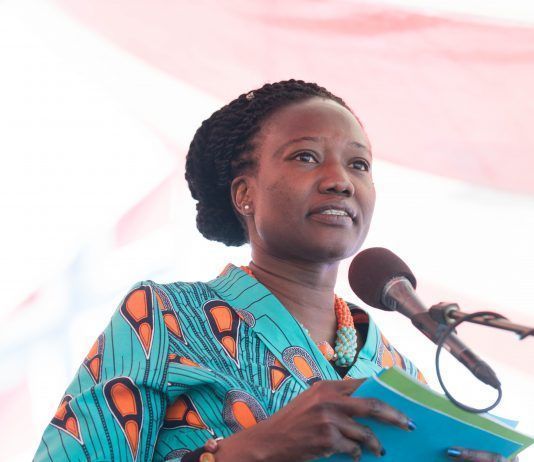
I came to Norway as a refugee from what was then Sudan, now South Sudan, in early 1999. I came to attend ISFiT, The International Student Festival in Trondheim, a festival organized every other year for students from various parts of the world. The theme that year was “Solving Conflicts” and I was in the group addressing children in conflicts. I wrote an essay about children in conflicts and got a stipend that funded some of my travel expenses. As South Sudan was still experiencing instability and many people were fleeing the country, I decided right after the festival to seek asylum in Norway. It was my life’s most difficult decision, deciding to stay in a distant country, far from family and loved ones. Though I had a brother studying in Norway, it was a tough decision to cut myself from the safety network of my family and friends I always had around me. I had to stop the veterinary studies I had begun and start all over again in Bergen.
Because I wasn’t a settled UN refugee, I had to wait 10 months for my asylum application to be processed. But because the conflict in Sudan was well known, I was granted asylum on humanitarian grounds. An exciting journey into learning the Norwegian language, navigating and adapting into the society then started.
As a young adult at the age of 23, I was already somehow shaped by many positive experiences from my upbringing. I had many values and norms and some experiences that I used as reference points and psychological lenses to help me navigate the new society. I learned the language, took one year of secondary school in Norwegian language, and then started studying at the university, Faculty of Natural Sciences. After getting my Bachelor’s in Natural Sciences (Molecular Biology), I felt that wasn’t the thing for me. I wanted to work directly with people, and I decided to study Social Work. I studied social work while I was working part-time at the Church City Mission, with immigrant women, young people, and families. It was a place that taught me many valuable lessons and has played a big role in my social work practice.
You have worked with immigrants and immigrant families for many years, can you tell us about your work?
I have always loved working with people, but I didn’t imagine social work was the thing for me. My mum was a social worker and had worked in an orphanage we often visited. She worked with elderly and disabled people, as well as women. I didn’t realize how passionate I was about social work until I started volunteering for a short time in a women’s group the Church City Mission in Bergen had started for immigrant women in 2005. By then, I was finished with my Bachelor’s in Natural Sciences and was home with my daughter. I had already lived 6 years in Norway and experienced a lot, both challenges and opportunities. So, when I learned about the women’s group startup, it was like an answer to a prayer I had. I immediately joined and it became a very important place and space for me; a place to meet other women, a place where women could come together with or without children and just be themselves; a place to learn from each other, a place to share experiences and tackle the different challenges they face in the Norwegian society.
Just a short while after volunteering, I was hired as a project coordinator. That same year I started my 3-year Social Work studies and after I finished, I was hired on two different projects in the Church City Mission: Empo-Multicultural Resource Center (when it started as the women’s group) and Batteriet West Norway (newly established at that time, in Bergen).

As a coordinator at Empo-Multicultural Resource Center, and with empowerment as our method and goal, I coordinated all activities in the women’s group. I also organised and held courses on topics like parenting, participation and employment in Norway. I represented the organisation and presented our work at conferences locally, nationally, and internationally. I also managed a lot of one-on-one counselling related to employment, family affairs, social challenges and navigated through the different offices of the public sector. Our goal was to assist immigrants in the integration process by providing a space where they get the information they need, apply their skills, and participate in different arenas of the society.
At Batteriet, which is a service center for self-help, I worked with individuals, groups, and organizations working against poverty and social exclusion in Norway. As a coordinator, my role was to give guidance and help individuals who come with ideas to create or start up an organization. Batteriet provided office spaces and courses on how to start up and manage organizations. We provided networking possibilities, offered different courses, and helped individuals, groups and organizations register and apply for funding. Representatives from the different organizations got the chance to meet authorities to present/address issues that concern them.
What would you say is the state of diversity and integration in Norway? In comparison to when you came to Norway and now, do you think it is improving?
I hear about and see a little more diversity now than when I came to Norway. I remember looking for people of color in offices and higher positions, but there were none. I needed people I could identify with and relate to in my journey as an immigrant. After a while, I saw a handful. I remember in the asylum camp where I lived, one Asian woman worked at the office. She could have been born here. But for some reason, I looked up to her, though I didn’t speak much with her. There was also a Sri Lankan woman who worked in the bank, DNB. She was one of the few persons of colour I saw, in addition to a Ghanian brother who worked in the labor office, whom I looked up to. With time, I started seeing a few others from Oslo portrayed in the media, but not within my reach and therefore not accessible to me.
I remember when I got employed in the Church City Mission in 2005. I was the first immigrant to be employed in the organisation in Bergen. At that time, the organisation had around 60 employees, and they had some contact with immigrant families through some of the projects they executed. Over the years, the organization became culturally diverse and they realized the value and strength diversity adds to their work and to the Norwegian society.
I think there’s a little more awareness now on diversity, and its perception as an advantage than the disadvantage it has been portrayed as in the past years. 2020 mandated a strong shift in how companies and society engaged on the topic of diversity and inclusion. But there is still a lot to be done. We need more political willingness to put in place policies that would make use of the diverse human capital and skills migration brings. We need leaders who intentionally and strategically choose to focus on diversity in their workplaces and are willing to learn to manage diversity when challenges show up. Most of the immigrants are here to stay, some for their whole life, and others for some years. The majority I have worked with, or met in different places, wish to contribute to the society they are living in. They want to participate and be an important part of the workforce and equally enjoy the benefits that come with that. But they experience challenges getting into the job market or staying employed.
If we look at integration as a staircase with different steps, we can envision people are at different stages. Whatever stage one gets to and stops at, depends on the goals one has set for oneself and how content one is with the position one stands on. Being proficient in the Norwegian language, having a job or secure economy, having a well-functioning and supportive social network, including some Norwegian friends and being able to participate in various social and cultural arenas in the society could be enough for someone to feel integrated. And for others, perhaps not. To get to any stage in the integration staircase, we need support. We need someone by our side to help us understand the hidden codes and give us the relevant information we need to be able to navigate through and eventually adapt.
Why do you think it is challenging for people to integrate and find their place in Norway? Beyond the language, for example, what constructive solutions can be implemented? What can the state, organisations and people do?
Immigrants in Norway fall under different categories depending on how and why they came. As such, their integration process may vary, not only based on their reasons for migration but also regarding how the system meets them and the policies that regulate integration.
For instance, refugees resettled to Norway by the UN have a system in place for them when they arrive. They get into a 2-year Introduction Program (at least for those under 55 years) where they learn the language and are channeled into education or the job market. If after the 2 years they have not gotten into school or work, they are moved to continue in the Work Qualification Program. For people with a good educational foundation from their home countries, the Introduction Program can be a springboard to greater opportunities for starting studies or getting employed after 2 years in Norway. For others, many of which have not been to school in their countries, 2 years is not enough to learn the language and get employed. Women, especially those with care responsibilities and who drop out of the program because of pregnancies/childbirth tend to spend a longer time within the qualification program. Many end up moving from one work-practice to another without being employed. This is frustrating to many.
Then, there is the group of skilled immigrants, collectively and regardless of their reason of migration. Those with higher education from abroad or from within Norway experience barriers getting into the job market. They have become experts in CV writing, some have been told they are overqualified and decide to downplay their qualifications, and many yet are told they don’t have relevant experience from Norway. There is unfortunately discrimination in the job market, though we don’t want to admit it. And this is a problem that needs to be addressed at all levels. Some people have changed names to have a better chance of at least getting close enough to be called for an interview and hopefully be able to present themselves and their competence.
- I think there should be a political willingness and effort to support immigrants who wish to start-up businesses that would create job opportunities for others. The job market is narrow now even for native Norwegians. So, giving funding to entrepreneurs would help create more job opportunities and reduce unemployment in the society and among immigrants. This will also reduce the use of social welfare benefits.
- There should be policies in place to regulate work practice especially for immigrants under the qualification program. Employers within the public and private sectors who agree to take in practice candidates should at least have an agreement to hire them either as a vikar or give them the chance to apply when there is a vacant position.
- More Mentor Programs for young immigrants undergoing studies, newly graduated, and seeking jobs.
- More networking arenas and diverse courses by organizations.
- On the individual level, everyone has the responsibility to be proactive and reach out and connect with people on various networking platforms, for instance, physically and digitally at events/seminars/conferences and on LinkedIn. These have been my greatest professional networking arenas from which I got so much inspiration, opportunities for personal growth, and job engagements.
How does your work impact integration and inclusion in Norway?
My participation in various organisations and boards gives me room to be impactful on different levels.
I am a member of Bergen Soroptimist International, a global network of professional women working through projects and advocacy to educate, enable, and empower women and girls, locally, nationally, and internationally. Nationally, Soroptimist Norway runs a mentor program for highly educated immigrant women to assist, guide, and mentor them through the job-seeking process. By getting a mentor who is a Soroptimist with experience from professional life, the two enter a mutual mentor-mentee partnership where they learn from each other and the mentee gets to learn about some codes of the Norwegian work life.
At the Organisation of African Associations (OAA) I coordinate activities together with a team of 6 others. As an umbrella for African organizations in Bergen, our goal is to provide the African community with necessary information promoting their participation and inclusion in different and important arenas in the society. We have held seminars on topics like, mental health (every 10th October), children with disabilities, the child welfare system and youth Empowerment. We have celebrated the Day of the African Child (6th June), The Day of the Girl Child (11th October) and have organised a cultural day “Miss and Mr. Pride of Africa”, showcasing the beauty and diversity of Africa.
With Papillon Bergen, where I chair the board, we work with young people from cross-cultural and migrant backgrounds, assisting them to reach their full potential through various targeted programs: individual counseling, outreach school programs, advocacy, and tackling migration challenges through collaboration with local authorities.
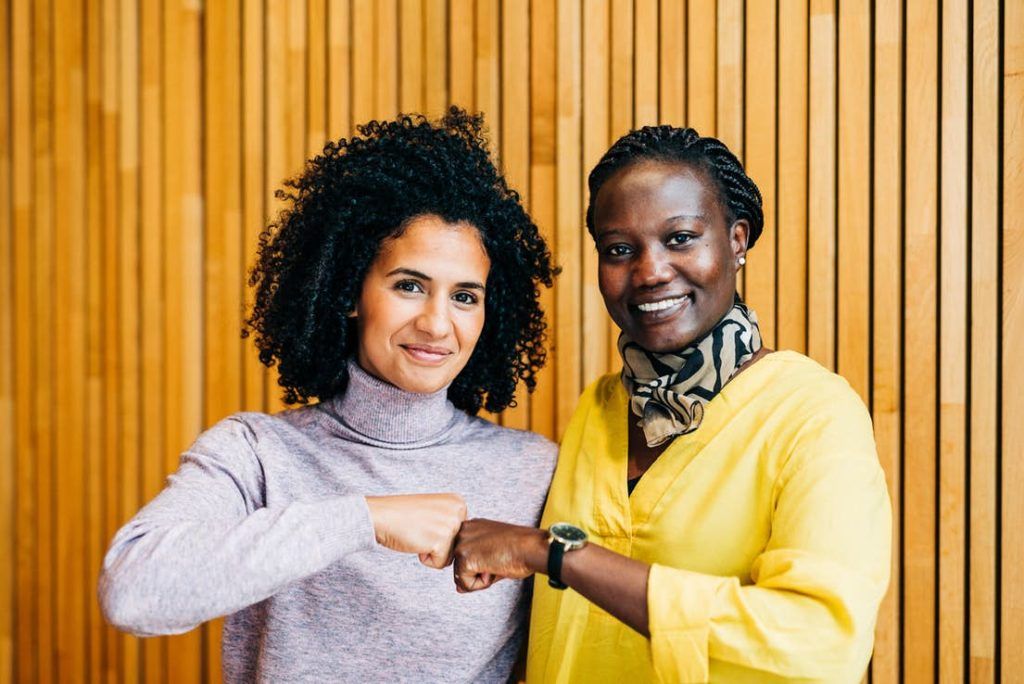
I am also a representative of Vestland Innvandreråd (VIR) on the board of Bergen International Culture. Vestland Innvadreråd is an umbrella organization for all immigrant organizations in Vestland. They organize courses, seminars, and events to address integration and migration challenges, and they act as a bridge between the organizations and politicians. They also come up with proposals on measures to promote belonging and inclusion in the Norwegian society.
The Bergen International Culture Center offers a cultural house where diverse organizations can meet, organize cultural events, and contribute to promoting diversity. It offers family activities, cultural nights, and youth events. There are also targeted goals to promote immigrants’ participation in cultural life.
Why is the work you do important in this regard and what have you learned in the process?
I am a contact person for unaccompanied refugee minors in Bergen municipality – this is my paid job. Migrating to Norway alone as a minor is traumatizing, taking into consideration the route and means of travel, and the harsh experiences many have experienced. Now, in Norway, every one of them wants to start a new life, learn the language, find themselves, and cope with many loses they have encountered: the loss of family and loved ones, loss of the familiar, and loss of oneself as the person one used to be. New values, new norms and new ways of doing things need to be learned. They start learning, relearning and unlearning some things. There is hope for a brighter future for some, and they try hard to accomplish goals and realise their dreams. For others, this hope gets quenched when the traumatic experiences start surfacing and start distracting their everyday life.
As a contact person, I assist and guide in the early stages of resettlement with getting the practical things in place. For instance, school registration, applying for a legal guardian, and finding a doctor. When most of the practical things are in place, I assist them in the adaption and integration process through guidance and connecting them with other NGOs where they get engaged in various activities. Though I was not an unaccompanied refugee minor, most of my experiences are relevant in my work, and I share them when I see it befitting, to show them that some of the challenges they are now facing shall pass, just like mine did. In a way, I become a role model for them, and they can relate to me and the common experiences we share.
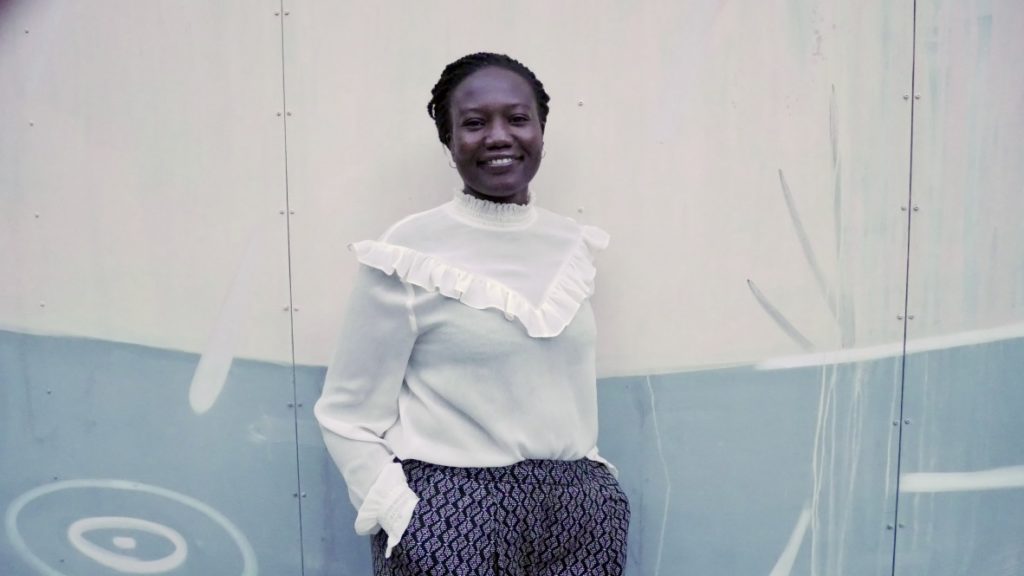
I strongly believe the work I am doing in my various capacities has so much impact on integration and inclusion in Norway. As a concerned citizen and a social worker, I actively use my voice, skills, competence, passion and the spaces I get into, to address societal issues and be a part of the change I wish to see.
The solutions to the challenges we encounter regarding integration and inclusion lie in the collective willingness of all citizens to do their active part and in their different capacities. As neighbors, we should be willing to welcome and include newly settled immigrants in our neighborhoods. Leaders should intentionally recruit skilled employees of different cultural backgrounds. Boards and committees should mirror and be representative of the people they work with and for. Policymakers should listen to professionals’ recommendations in regard to solutions of integration problems and amend laws that are disempowering and exclusive of certain groups in the society.
You are very active in working to include women of minority backgrounds in social and professional life in Norway. Can you tell us about that work and how is it to be a woman of color in society and the professional world?
Growing up around many phenomenal women of diverse caliber has imparted something great in me and in the way I see women generally. I always see strength in every woman I meet, and I consciously choose to magnify the strength I see. I see resilient women, women who made it through despite the hurdles on their path.
Moving to Norway, a country known for its great values of gender equality, democracy and social equality, I was impressed to see Norwegian women in jobs that would strictly be boxed into male jobs in my country. That inspired me and I could see the possibilities Norway could offer to me as a woman. But this representation of women that made such an impression on me, didn’t quite add up when I looked at minority women’s representation in the workplace.
Immigrant women were looked at as disempowered by their cultural backgrounds, religion and some traditional practices. The media almost always portrayed immigrant women as victims and that became problematic for me.
I met many women in my previous work at Empo. Women who do all they can to get into the job market. Some had qualifications in place and many years of work experience from their home countries but lacked networks that could help them through the job-seeking process or stand as references. Many end up being frustrated and disempowered. And I do understand – because when you send over 100 job applications and never get called for an interview, you become so discouraged you don’t want to try again. You start doubting yourself and your competence and this can leave some severe psychological scars.
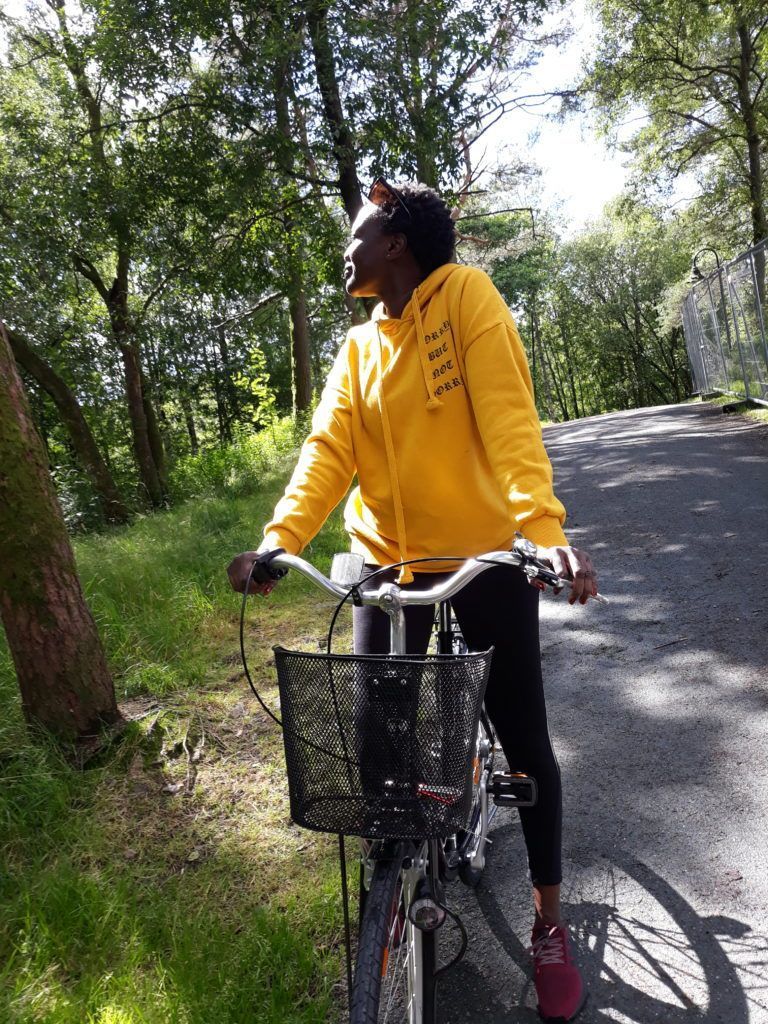
Because of my active role in the society, I get contacted by many for guidance, mentorship and advice regarding different issues, employment being one of them. I don’t have jobs to offer, but I might know someone, who knows someone, who knows someone that might be of help.
I generously share my knowledge, experiences, competence, and network with those who need it. As an African woman and with woman to woman fellowship being an important value in my upbringing, I love sharing information or knowledge that can empower others. I didn’t have a mentor myself and as such, I had to find seek out things myself and I initiated my personal and professional development with little guidance. With this experience in mind, I find it extremely important to share the opportunities that come my way with those who might have limited access to it. It could be small tips on how to do things, information about events, job opportunities, articles to read, network, etc.
As a woman of colour in Norway, I feel there are so many opportunities for us to excel, if and only if, we know them and can make use of them. The problem here is that so much information and opportunities are hidden or pass through networks, something that a lot of us women of colour don’t have. So, we don’t get to participate in the right spaces at the right time to get those opportunities.
There is also the part of personal responsibility. I always encourage the young people I mentor to be proactive and do their best to participate in different events where topics of their field of interest are addressed, and while there, to actively interact with others. By doing so, they get the chance to widen their network and get an opportunity to bring in their views on the topic. The broad network I have today is a result of the choices I made in my first years in Norway to get involved and volunteer in different activities and organizations. This has had a huge impact on my career path and personal development. I got to build up my CV with valuable experiences which eventually played a big role in my later employments.
We understand you are also a lecturer and a speaker. Can you tell us more about this?
Because of my passion and activism in issues regarding migration, parenting and women empowerment, I get asked to speak on different occasions. I have had appeals and speeches on large public events i.e. the International Women’s Day, The Norwegian National Day, and Black Lives Matter Protest among others. I have also had presentations in seminars/conferences on various topics. Once a year, I am invited in as a guest lecturer at University College in Lillehammer, to lecture for two classes: Master’s in Child and Adolescent’s Mental Health; and third-year Social Work. Some of the topics I have lectured on are about immigrant families and the child welfare system, parenting in diverse contexts and general issues related to integration. I use different lenses as I address these issues and try to connect with the students – the lenses of my personal experiences from being an immigrant, a parent, and a professional. Integrating all these aspects, experience, knowledge and practice is very important and contributes to a more holistic assessment.
How do you navigate and negotiate motherhood and professional life?
I started my social work studies when my daughter was 2 years old, and I was working 30% part-time. My husband was of great support then. He stayed home with our daughter while I stayed late at school studying and writing my assignments. I am the kind of person who loves being active and having many things to do – I think I am more effective this way. Now as a mother of two, in a full-time job and actively engaged in various social and societal activities, I have learned to structure my days and prioritize well to be able to navigate through my everyday life. I am blessed to have a good network of family members and friends to help out when need be. We have also been blessed to have a great Norwegian reserve grandmother who helped to stay with the kids, and especially when I have to participate in some events in the afternoon.
I try to use my time wisely because I know I have many roles and with them, many duties to fulfill. The primary and most important role I have is being a mother, and I am intentional in prioritising motherhood, over my other roles. I know my children can never get a supplement mother, but there will always be someone who can take over and cover the other roles I have.
I find so much fulfillment and joy in my role as a mother, in as much as it demands a lot from me. I consciously set aside time for myself to do what I love. I take time to go out for solo walks in nature to exercise, reflect and rejuvenate myself. I feed my soul spiritually by meditating on the Word of God, listen to sermons, and being in fellowship with other believers. I also spend much time with a few really good friends, friends that I call sisters, and from whose company I get so much inspiration, direction and energy boost. All that I engage in gives me a sense of meaning in life and through it, I get to live out the values I stand for: love, empowerment, equity, and full potential for myself and others.
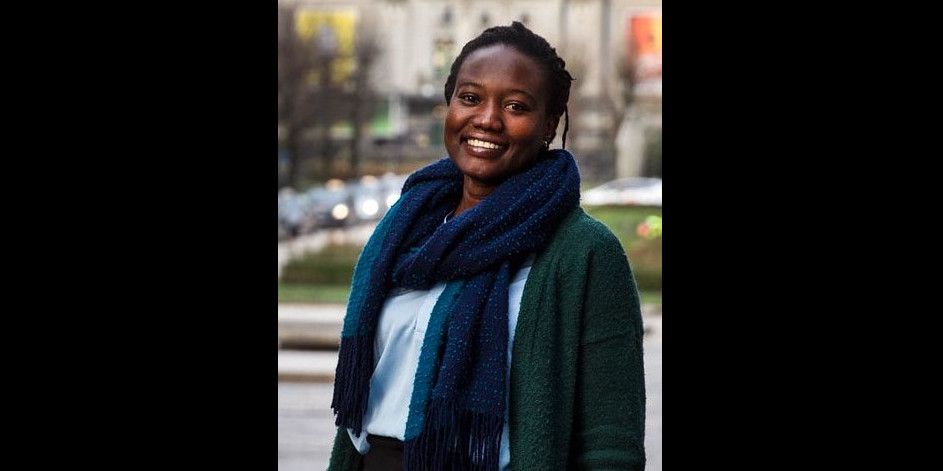
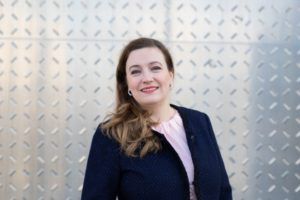
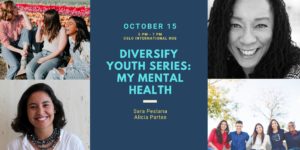

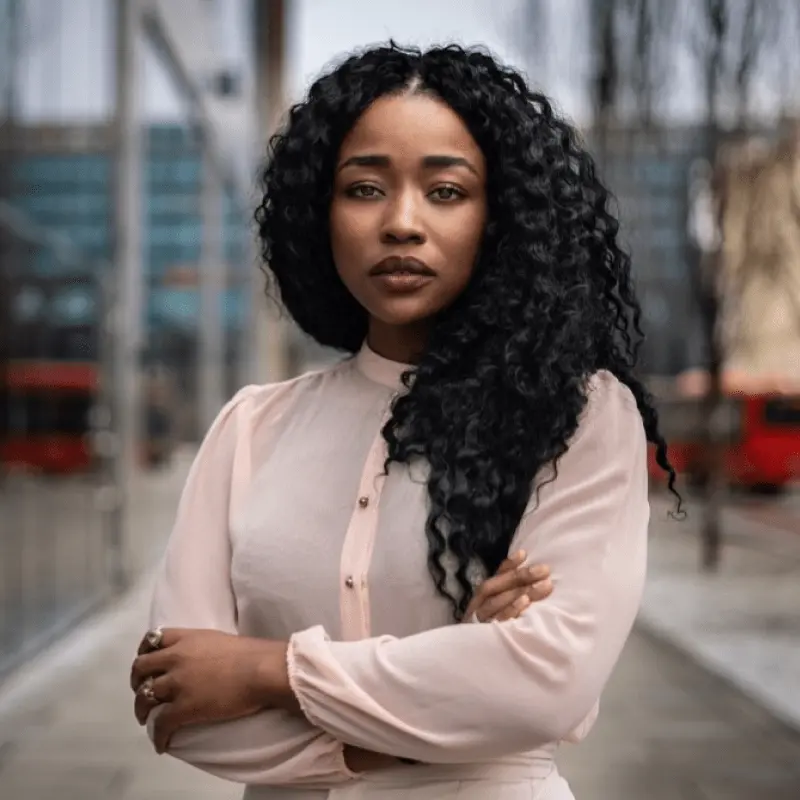
Fantastic article! What an extraordinary woman and an inspiration to so many! Thank you for sharing her story! It’s great to hear about the work others are doing to champion diversity and integration in Norway!
Thank you so much Julia <3
What a heart melting article. Well articulated and on point about this extra ordinary woman Dora Poni. I know her personally and I can testify to what she has accomplished during her time in Norway. She inspires me. I applaud her and wish much more to do in the future. We need many of her calibre in this challenging world we live in. Bravo Dora, keep it up.
Thank you sister Susan <3